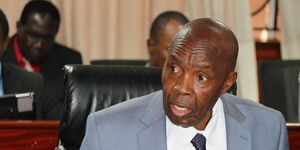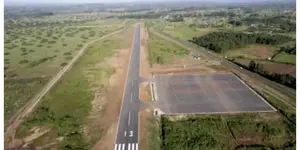Depreciation of the Kenyan shilling is threatening local businesses, especially those that rely on imported materials. Coupled with the acute dollar shortage that has seen it exchange for as high as Ksh120 per dollar in some cases against the quoted rate of Ksh116, the country's economic future looks grim.
Although the dollar is not used to make day-to-day transactions by citizens in purchasing basic commodities, its shortage has direct and adverse effects on all Kenyans.
A few highlights on how the dollar shortage has affected the country include a sharp increase in fuel prices that hit a record high of Ksh150 per litre of petrol, hike in cooking oil prices, and a spike in fertiliser prices among others. One of Kenya's biggest cooking oil manufacturers on Monday, June 6, closed its plant attributing the shut down to the shortage of dollars in the country.
Speaking to Kenyans.co.ke, economic analysts Nicholas Gachara, who is also the Chief Executive Officer of Somakazi, noted that unless the situation is addressed, it may plunge the country into a situation of hyper-inflation.
He alluded Zimbabwe's situation noting that unless a solution is found, the people might be compelled to start carrying huge sums of money in bags just to buy basic commodities like sugar and cooking oil.
"Dollar shortage unless addressed may result to hyper -inflation, a situation similar to what is happening in Zimbabwe where people are forced to carry money in bags and even wheelbarrows to buy basic products," he explained.
According to the economic analyst, the dollar shortage - which is already a headache in the country's efforts to stabilise fuel prices - will further make the prices of commodities go higher. Gachara noted that if the government withdraws the fuel subsidy, prices will retail for as high as Ksh200 per litre and prices of electricity tokens will increase.
"Unless addressed, Kenya can hit a situation where even fuel will retail at Ksh200 without subsidy. Tokens will be expensive and other basic products such as fertiliser, cereals, wheat, cars among others."
The dire situation might further spell doom to the next government, especially in debt repayment. Gachara explained that Kenya's loans were remitted in dollars. Its shortage may thus affect the repayment terms following the currency fluctuation.
"Kenya will have a problem accessing other loans due to over stretched credit limit," he explained.
Following the closure of its plant, the cooking oil firm announced plans to accept only dollars from consumers purchasing its products. Explaining the repercussion of manufacturers ditching the dollar, Gachara noted that it will lower the value of the Kenya shilling thus affect the market demand and force in the region.
Manufacturers have already warned of possible job losses in the sector or suspended operations as they try to navigate cash flow problems.
"If the situation remains unresolved, the business community involved with importation (e.g. manufacturers, car dealers), will be largely affected and might lead to further closure and job losses," he explained.
The situation is compounded by the weakening of the shilling against the dollar, which means that it is costing companies a lot more to buy forex.
It has also meant that firms are hedging against further weakening by stocking up on dollars or holding on tightly to their American currency reserves.
Demand for dollars locally has gone up significantly this year due to surging imports that followed the full reopening of the economy, which has unleashed pent-up demand for both consumer and capital goods.
Gachara warned that unless the situation is addressed, the country may go the Zimbabwe way or even start operating parallel exchange firms, a situation which is affecting Nigeria.
However, the National Treasury has blamed the dollar shortage on the stockpiling of hard currency by manufacturers who have been operating in fear of a looming forex crunch.
"Sometimes it's just sentiment that causes a problem and that’s what I told manufacturers yesterday. If they work on the premise that there's a shortage of dollars and start accumulating hard currency more than they require, that creates an artificial shortage which doesn’t reflect the reality on the ground," Treasury Principal Secretary, Julius Muia, stated.












